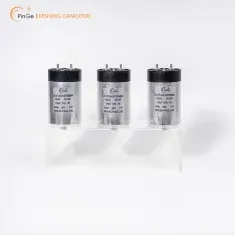Nov. 17, 2023
Electronic Components & Supplies
A capacitor is an electronic component that stores and releases electrical energy in a circuit. Its primary function is to store electric charge, and it has a significant impact on the voltage within a circuit.
Here's how a capacitor affects voltage in a circuit:
Charge and Discharge:
When a capacitor is connected to a voltage source, it begins to accumulate an electric charge on its plates. The voltage across the capacitor increases as more charge is stored. The relationship between the voltage (V), capacitance (C), and the amount of charge (Q) stored on the capacitor is given by the equation Q=C⋅V, where Q is the charge, C is the capacitance, and V is the voltage.
Time-Dependent Behavior:
Capacitors exhibit time-dependent behavior in response to changes in voltage. When the voltage across a capacitor changes, the capacitor responds by allowing current to flow into or out of it until the voltage stabilizes. The rate at which this charging or discharging occurs is influenced by the capacitance value.
Filters and Smoothing:
Capacitors are commonly used in electronic circuits as filters to smooth out voltage fluctuations. In power supply circuits, for example, capacitors can be connected in parallel to smooth the output voltage, reducing ripple and providing a more stable DC voltage.

Phase Shift in AC Circuits:
In alternating current (AC) circuits, capacitors introduce a phase shift between voltage and current. The voltage across a capacitor leads the current by 90 degrees in an idealized situation. This phase shift is utilized in various applications, such as in phase-shifting networks and inductive-capacitive (LC) filters.
Energy Storage and Release:
Capacitors store energy in an electric field between their plates. The energy stored in a capacitor is proportional to the square of the voltage across it. The formula for the energy stored (E) in a capacitor is E = 1/2 × C × V2, where E is the energy, C is the capacitance, and V is the voltage.
Blocking DC and Passing AC:
Capacitors block the flow of direct current (DC) while allowing alternating current (AC) to pass through. This property is used in coupling and decoupling applications where DC needs to be blocked while AC signals are allowed to pass.
In summary, a electronic capacitor has a dynamic relationship with voltage in a circuit. It can store electrical energy, smooth out voltage fluctuations, introduce phase shifts in AC circuits, and play a crucial role in various applications by virtue of its ability to store and release charge. Understanding the behavior of capacitors is fundamental in designing and analyzing electronic circuits.
Previous: What is the lead-acid battery?
Next: How Vertiv Liebert UPS Works for Continuous Power Protection?
If you are interested in sending in a Guest Blogger Submission,welcome to write for us!
All Comments ( 0 )